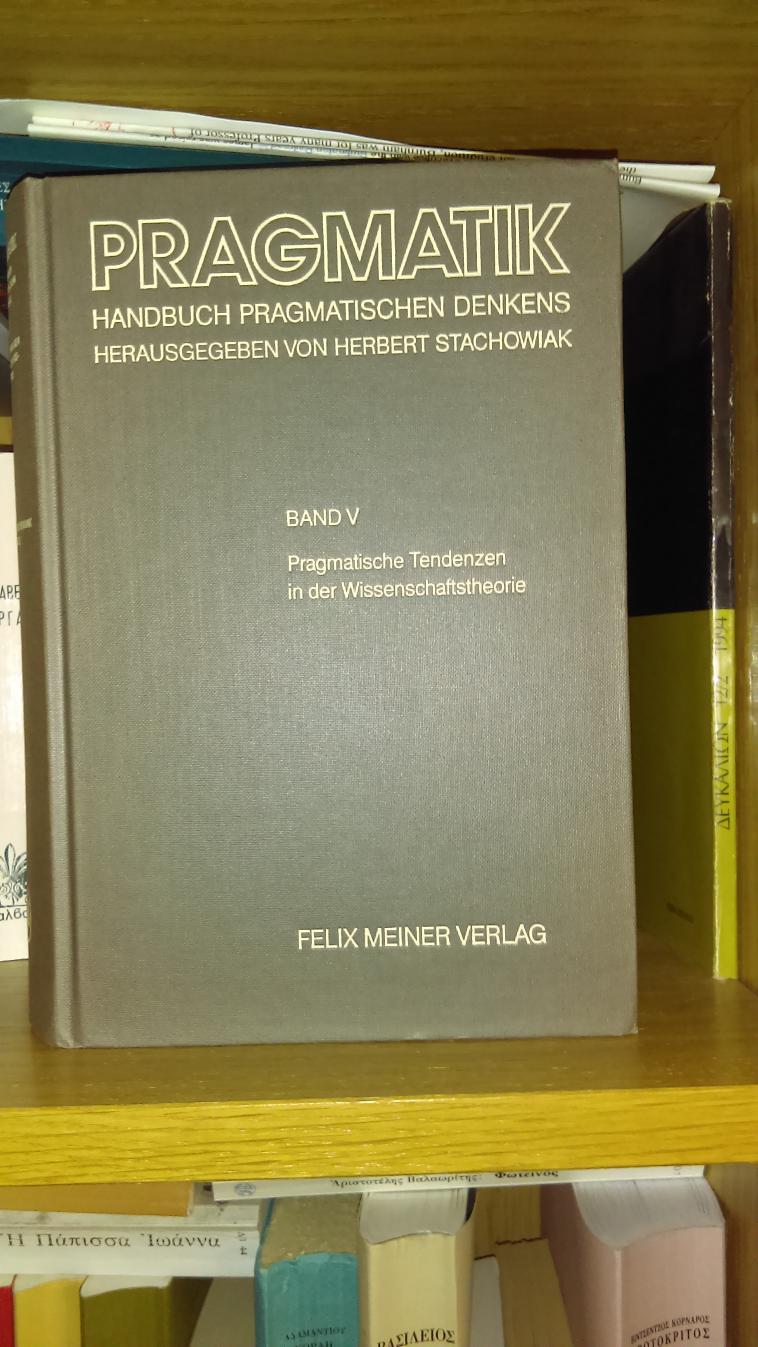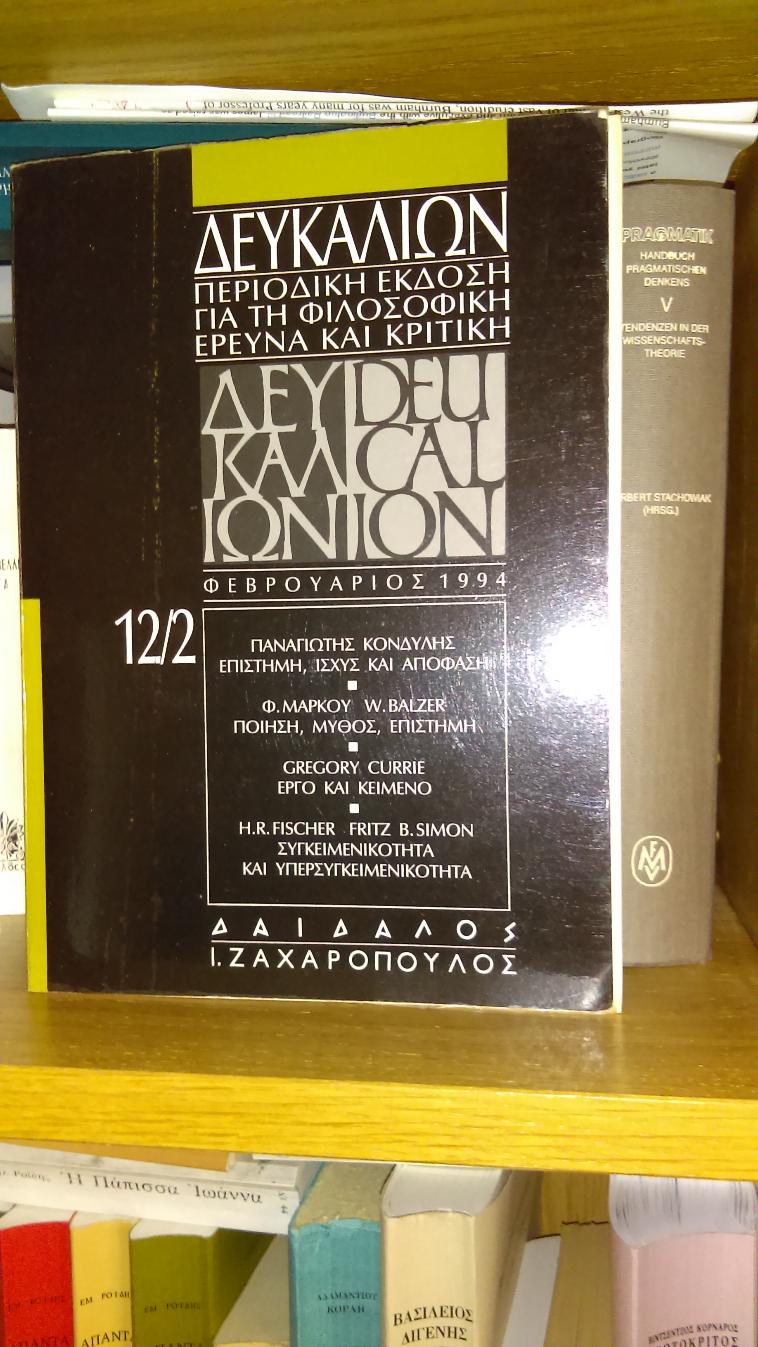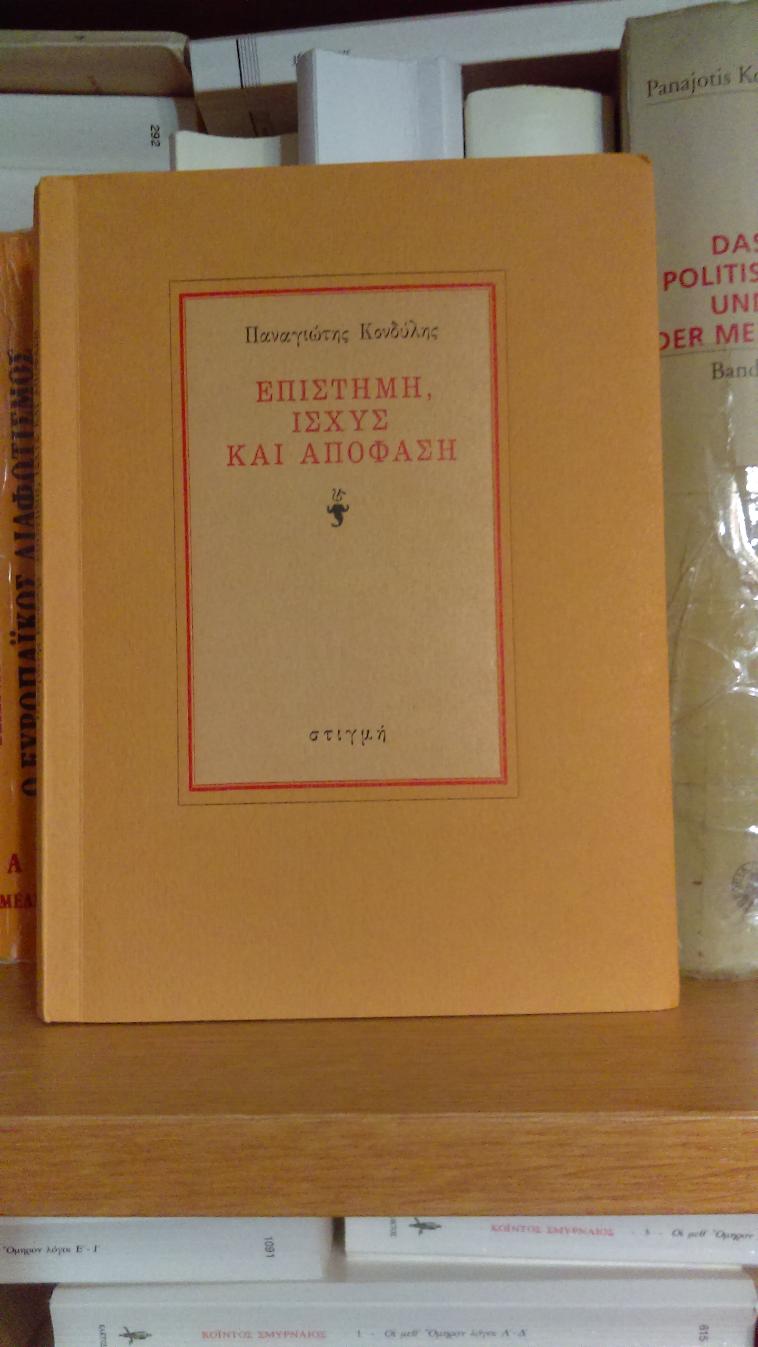Disclaimer: Nothing within this page or on this site overall is the product of Panagiotis Kondylis's thought and work unless it is a faithful translation of something Kondylis wrote. Any conclusions drawn from something not written by Panagiotis Kondylis (in the form of an accurate translation) cannot constitute the basis for any valid judgement or appreciation of Kondylis and his work. (This disclaimer also applies, mutatis mutandis, to any other authors and thinkers linked or otherwise referred to, on and within all of this website).
SCIENCE, POWER AND DECISION by Panagiotis Kondylis - plain English version (see bottom of this page for the "alternative words and phrases" version including some German text)

|
Science, Power and Decision by Panagiotis Kondylis.pdf Size : 765.18 Kb Type : pdf |



Read the article in English which in a hitherto unknown manner outlines the extent we can know, including knowing about all forms of knowing, without a hint of ideological bias or of weakness as to facts, i.e. empirical reality, and without becoming lost in labyrinths of bombastic and pointless words focussing on minutiae and ultimately, from a practical point of view, irrelevant matters. One could read countless thousands of pages written by the "greatest philosophers and thinkers" (including the literally tonnes of nonsense produced by fashionable intellectuals-ideologues in recent decades), particularly in the field of epistemology (the theory of knowledge), and not come anywhere near to the clarity and certainty of knowledge contained within the 20 or so pages of Kondylis's German text (to be fair to great thinkers of the past such as Hobbes, Locke, Descartes, Spinoza (and many others) the various polemical needs of their times - i.e. the various polemics of new-times philosophical stances with reference to ancient-Christian metaphysics and the hierarchisation of being, or, the steady replacement of the primacy of ontology by the primacy of epistemology - were not something with which Kondylis directly engaged in formulating his own theories, rather Kondylis wrote the broad history of those needs and the attempts to satisfy them in his magisterial The Enlightenment in the framework of new-times rationalism and The new-times critique of metaphysics; moreover, Kondylis makes it clear in "Science, Power and Decision" he is dealing with theoretical activity in general, i.e. explanations of natural and social phenomena, and not how we know within the restrictive prism or dichotomy of e.g. empiricism vs. rationalism, which, at least in part, arises from the aforementioned historical polemics (in the "Foreword" to Power and Decision Kondylis calls his theory "a theory of human action and of the function of the intellectual(-spiritual) dimension in it").
In any event, apart from logical consistency and correspondence with empirical reality, what makes "Science, Power and Decision" and all of Kondylis's work stand out is that he does not tell his readers what to do or what "should" be done (notwithstanding the fact that any and every claim to knowledge constitutes a power-claim and is historically determined and relative, including Kondylis's claims to knowledge). There is no (ethical-)normative dimension, and in this sense Kondylis's work is scientific or value-free (given logical consistency and confirmation by empirical reality, as well as of course the acknowledgement of the limits to knowledge). Knowledge is power, but not in any socially meaningful sense for the absolutely consistent (social or natural) scientist (or as Kondylis preferred to put it in respect of the social scientist, "observer of human affairs"), whose task is not to change, but to contemplate (consider, observe) and explain. Kondylis is the first and only known "philosopher" who has systematically claimed or shown across several thousand pages of his own written work, regardless of what the main focus of his attention is at any given time, that a) there can be certainty of knowledge (to the extent it is possible) and regardless of its necessary perspectivity and historicity, while b) values are relative, and that the relativity of values and associated normative power claims always have more to say in terms of driving social action than the possibility of knowing what is, particularly to the full extent that knowledge is possible (in other words, all world images or positions or theories are historically determined, but they are not all relative or subjective if one accepts some level of certainty of objective knowledge which is verified empirically - insisting that all positions are relative (as to facts), logically contradicts itself because the insistence (that all positions are relative as to facts) is itself a truth claim with supposed reference to empirical reality).
For those who can manage to read German, an excellent article outlining some of Kondylis's basic positions whilst rebutting post-modern ideological prejudice, e.g. ethically-charged and emotional accusations of "fundamentalism" just because Kondylis never bowed to any ideological programme, including post-modern mass-democratic social theory, is:
Konstantin Verykios: Wissenschaftliche Wahrheitssuche bei Panajotis Kondylis.
In: IABLIS. Jahrbuch für europäische Prozesse, 12. Jg., 2013
http://www.iablis.de/iablis_t/2013/verykios13.html
(Inter alia, the important point is made by Verykios that M. Weber in reference to "value rationality" meant value as an ethical or religious value; hence, the misunderstandings over the term "value-free" etc.).
Also illuminating as to the question of Kondylis's methodological outlook is K. Verykios's article:
Konstantin Verykios: Erkenntnistheoretische Einsichten und methodisches Vorgehen –
Clausewitz und Kondylis, IABLIS Jahrbuch für europäische Prozesse 13. Jg. 2014
https://themen.iablis.de/2014/verykios14.html
SCIENCE, POWER AND DECISION (Wissenschaft, Macht und Entscheidung) by Panajotis Kondylis - alternative words and phrases version with some German text